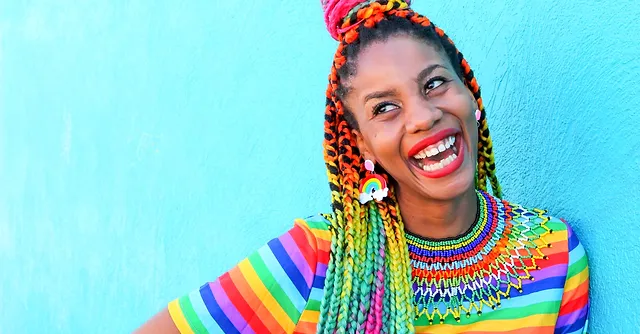 Our podcast, (RE)FRAMED, has been created to center our stories, share our knowledge and contribute to conversations impacting Autistic people, our community and our children. In our own words, we are framing, and re-framing, our stories!
Our podcast, (RE)FRAMED, has been created to center our stories, share our knowledge and contribute to conversations impacting Autistic people, our community and our children. In our own words, we are framing, and re-framing, our stories!
Click here to learn more about (RE)FRAMED and to see all episodes available.
Our conversation with Chenai Mupotsa-Russell (she/her) was a complete joy! Full of rich insights gained through lived experience meeting professional practice in the allied health space. We dive into intersectionality and challenges faced in a higher education setting. And, we talk a lot about rainbows!
Chenai is the founder and co-director of Rainbow Muse, a clinic based in Naarm (Melbourne) that offers neuroaffirming art therapy, psychology, child-centered play therapy, animal-assisted therapy and yoga in an inclusive environment that celebrates diversity. Through her work, Chenai works within an intersectional framework, with a social justice lens and she is currently studying her PhD.

The Reframing Autism team would like to acknowledge the Traditional Owners of the lands on which we have the privilege to learn, work, and grow. Whilst we gather on many different parts of this Country, the RA team walk on the land of the Awabakal, Birpai, Whadjak, and Wiradjuri peoples.
We are committed to honouring the rich culture of the Aboriginal and Torres Strait Islander peoples of this Country, and the diversity and learning opportunities with which they provide us. We extend our gratitude and respect to all Aboriginal and Torres Strait Islander peoples, and to all Elders past and present, for their wisdom, their resilience, and for helping this Country to heal.